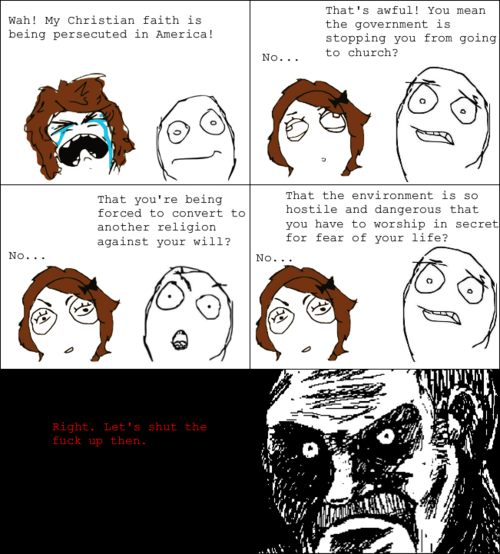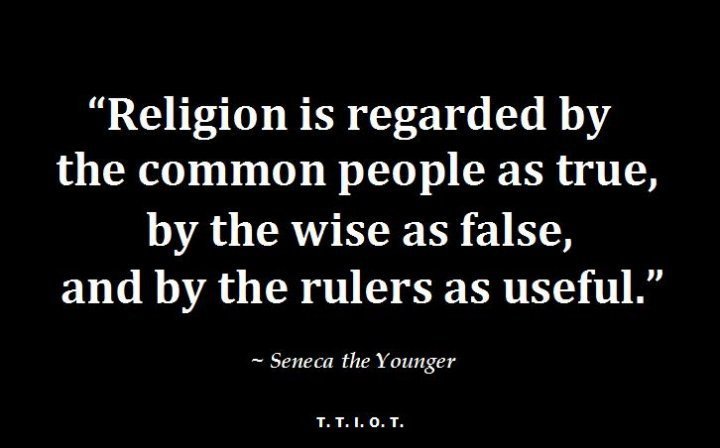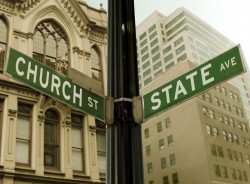The death penalty no longer applies to people who divorce or sleep with women during their periods, as described in the Bible. So why can’t attitudes on homosexuality change as well?
COMMENTARY
On St. Patrick’s Day I had the pleasure of speaking to about 350 Catholics who gathered together to attend a conference put on by New Ways Ministry, which is an effort to support the LGBT community in the Catholic Church. The women and men I spoke to included nuns and priests, children who had come out and parents who wanted to be supportive. Two female priests gave me special blessing and I left the meeting inspired by the devotion of those who attended.
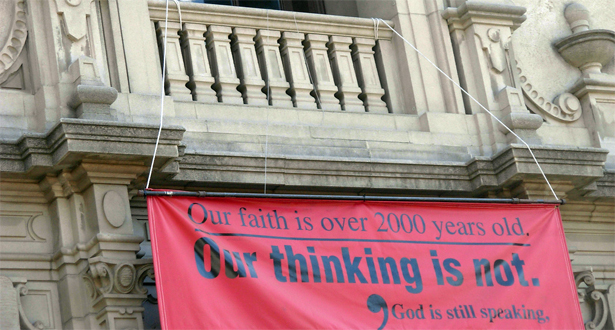
New Ways Ministry has a critical mission, since changing the Church will help those who suffer from ill treatment not only here in the United States but around the world, where the Church has so much clout. The Church has millions of members in Africa and South America, where being gay or lesbian can lead to a death sentence.
Worse, the Church’s own teaching encourages bigotry and harm. Just last year, my father’s memorial, the Robert F. Kennedy Center for Justice and Human Rights, gave its human rights award to Frank Mugisha, a gay activist in Uganda whose good friend had just been brutally killed in his own home. American missionaries have encouraged the discrimination Mugisha suffers. Refuting their religious arguments is critical, and so is making a moral and religious case for gays. What we need is a transformation of hearts and minds, not merely a change of laws.
The Catholic Church’s attitude towards homosexuality is at odds with its tradition of tolerance and understanding. The actual practice of the Church is true to this tradition. What other institution separates men and women and encourages them to live together in monasteries and convents where they can develop deep relationships with those who share their kind of love?
The fight for the dignity of the LGBT community is a fight for the soul of today’s Church. Some conservatives see the hierarchy’s current, traditional teaching on sex as the Church’s defining position. They don’t really like to talk about, or even be reminded of, the Church’s teachings on immigration, or protection of the environment, or the greed that produces financial meltdowns, all of which they would find distastefully liberal.
For them there is only one issue — sex, or pelvic politics as some call it. The Pope himself pointed this out on in visit to Mexico, where he said that “not a few Catholics have a certain schizophrenia with regard to individual and public morality…. In public life they follow paths that don’t respond to the great values necessary for the foundation of a just society.”
If we wish to change the Church, we must first convey our views in language, images, and theology that reach people where they are. And secondly, we should make it clear that disagreement with the hierarchy is a critical part of our history.
The fact that so many Americans see themselves as religious, as God-loving church goers, means we have a better chance of reaching them if we use a language, a book, and symbols they understand. Polls find that 85 percent say that they believe in God and 50 percent claim that they go to church every Sunday. The fact that only 25 percent do just goes to show that you can’t trust everybody’s self-reporting.
In The Good Book: The Bible’s Place in Our Lives, the recently deceased Peter Gomes describes interviews with 400 people who had been jailed for hate crimes against gays. None felt remorse. They thought gays were the devil, so fighting them was cause for pride, not shame or regret. Laws are important, but the moral case can be even more compelling.
When my father visited South Africa in 1966, he spoke with students in Cape Town about apartheid. They defended the abhorrent practice by pointing to Biblical passages that suggested that discrimination was fine. In an effort to reach them, my father asked, “Suppose you die, and you go up to heaven, and you enter the pearly gates, and suppose, just suppose when you get there, you find that God is black.” Today we can ask, “Suppose God is gay.”
My father grasped, as did John Kennedy and Martin Luther King, that in America the leader who wishes to enlarge freedom’s sphere must appeal to an audience’s religious beliefs as well as to their understanding of American liberty. This is what I wrote about in my book, Failing America’s Faithful. While researching it, I gained many insights into the Church and its history of both prejudice and tolerance.
The Great Awakening of the 1740s gave people the idea that they could find God within themselves and need not trust preachers. As one perceptive British writer pointed out, if they don’t need rectors, soon they won’t need British rulers. Sure enough, once Americans got used to trusting themselves, they did rebel. Then the Second Great Awakening, in the 1850, instilled in Americans the idea that not only did the divine reside within them, it also resided in women and slaves. The Abolitionist movement grew from that religious revival, as did the suffragettes.
A few years ago, I read the Bible from Genesis to Revelations, and to me the biggest revelation was how misogynistic it was. That made me realize that the Catholic Church was on to something when it allowed only educated priests to read the Bible. My mother’s generation was prohibited from reading the Bible, and when I told my grandmother that my father used to read the Bible to us, she was shocked, “Catholics don’t read the Bible,” she said. The Church figured that people could take passages out of context and come to unwarranted conclusions. This changed after Vatican II and now Catholic parishes offer Bible study classes.
But those outrageous passages did not deter either the abolitionists or the suffragettes. They boldly rejected them as cultural detritus. Instead, they asserted that the primary message was that all people were made in God’s image. Thus we are born to be free.
Unfortunately, a century later, in the 1970s, feminists and gay rights activists did not adopt the same strategy and tactics. I think this happened because their movement grew out of the non-religious part of the civil rights movement. Recall that the civil rights movement was split between the followers of Reverend Martin Luther King on the one hand and Stokely Carmichael and the Black Panthers on the other. The latter group felt that religion was weak. Why turn the other cheek? Why not fight back? This secular strain also attracted many intellectuals who were, to put it bluntly, uncomfortable with religion.
Happily, that has now changed. Women have entered schools of theology and can now show that Jesus was one of the first great feminists. Mary Magdalene is no longer thought of as a prostitute but as the “apostle to the apostles.” Gays, though, are still excluded.
Progressive Christian and Jewish believers have accepted gay rights. Theologians now argue that verses in Leviticus that call for the killing of men who sleep with men apply only to a particular historical moment. The death penalty no longer applies to people who divorce, curse their parents, or sleep with women during their period — rules that are also in Leviticus.
Obviously, some people continue to read scripture simply to sustain their preexisting prejudice against homosexuality and homosexuals. But theologians now point out that the word “homosexual” didn’t even exist until the 19th century, and it wasn’t included in the Bible until 1946.
Choose your passage. King David talks about sleeping with his friend Nathan as “better than sleeping with a woman.” The Ten Commandments don’t mention homosexuality. Nor does Jesus. In fact, our Lord teaches us that love of God and love of our fellow human being are the two most important commandments. He doesn’t exclude the love that one man can have for another, or one woman for another.
The 2000-year-old passages favored by Church authorities don’t hold up as being anti-gay. Not only is the hierarchy — the Church’s cardinals and bishops — imposing its own interpretations, its views are harmful to many men and women. I would hope that the lens through which one reads scripture would be one of love and openness to others, not fear and anger and meanness.
Contrary to conservative propaganda, though, the Vatican is not immovable. It has a long history of changing position to follow new understandings of society and morality. Usury is no longer a sin. Women are no longer considered “the devil’s gateway.” Railroads are no longer cursed as the work of the devil, and teaching that there is such a doctrine as “freedom of conscience” does not merit censure, as it did for John Courtney Murray in the 1950s: In fact, Vatican II now recognizes “freedom of conscience.” Pope John Paul II apologized for the Church’s treatment of women and its persecution of Galileo. Sex between husband and a wife is no longer just for procreation but has value in itself.
That history can continue with its position on gays — and the laity has a critical role to play in pushing for these changes. As Cardinal John Henry Newman, the foremost 19th-century Catholic theologian asserted, bishops have at times “failed in their confession of the faith.” There can be instances of “misguidance, delusion, hallucination.” He said that the body of the faithful has the “instinct for truth.”
Already, I have witnessed that instinct for truth in the argument over contraception. Despite the hierarchy’s position, 98 percent of Catholic women in the United States use contraception. I believe that Human Vitae was the Holy Ghost’s way to teach us that we must use our conscience, and not lazily rely on the hierarchy when it is in error.
At this time, when the hierarchy does not want to recognize that we are all made in the image and likeness of God, and that the one of the two most critical commandments is to love one another, it is critical to assert that God loves the LGBT community equally. Sometimes the Church moves slowly, sometimes quickly. The point is to make sure the voices of dissent are not quiet and the Holy Spirit can be heard.
Complete Article HERE!
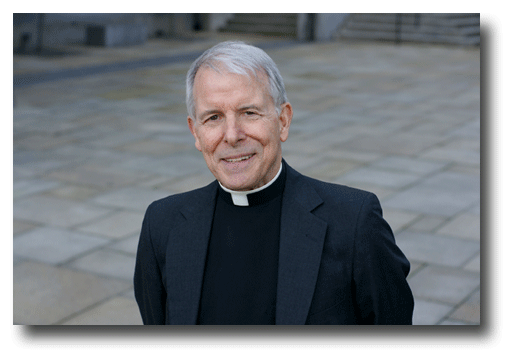 News first broke this afternoon when St. James Cathedral pastor Michael Ryan said he refused to circulate the petitions because it would “prove hurtful and seriously divisive in our community.” That bucked Seattle Archbishop, J. Peter Sartain’s recent invitation to run a signature drive for Referendum 74 in all local Catholic churches.
News first broke this afternoon when St. James Cathedral pastor Michael Ryan said he refused to circulate the petitions because it would “prove hurtful and seriously divisive in our community.” That bucked Seattle Archbishop, J. Peter Sartain’s recent invitation to run a signature drive for Referendum 74 in all local Catholic churches.
